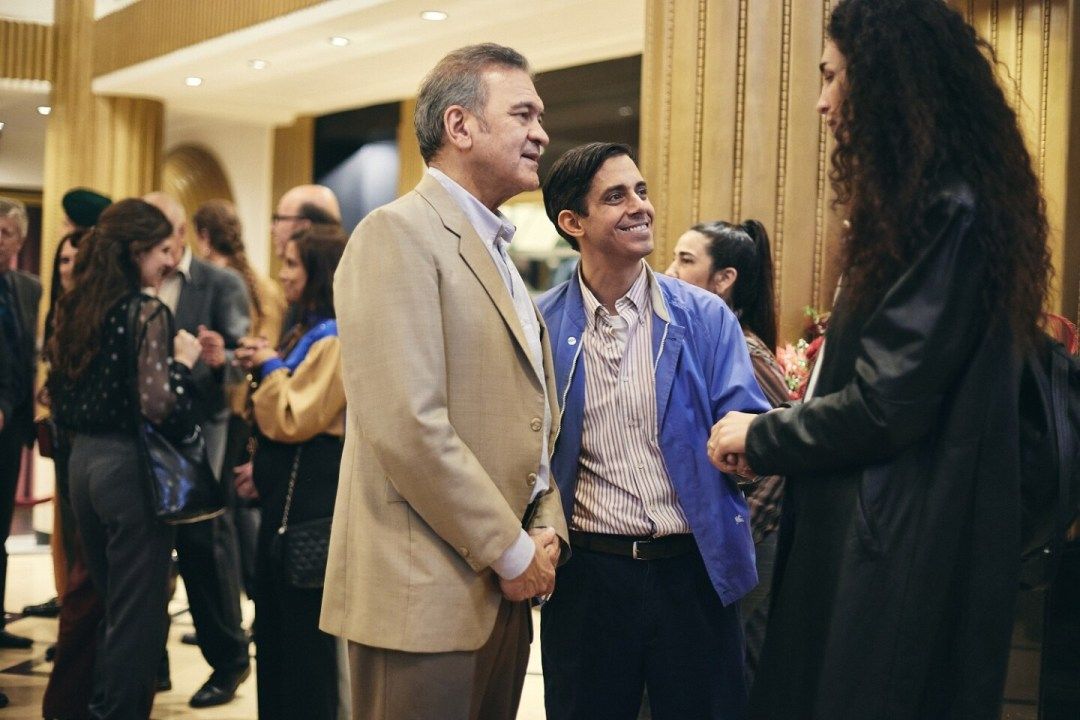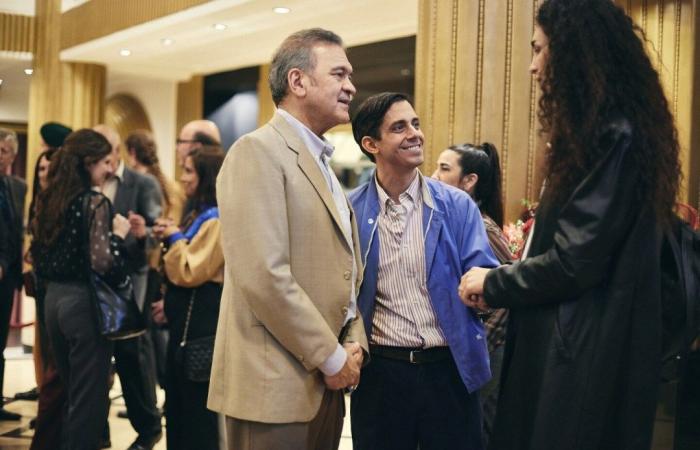It may not have many new facts or allow us to get to know Cris Miró in depth, but the series that premiered on TNT and Flow last Sunday and Monday respectively, It may help us to think about how much things have changed in the 25 years since she died at the age of 33 in 1999. And how in the brief five years she took over the scene, she became an icon of sexual diversity.
The first thing that strikes you in this eight-chapter recreation, based on the book by journalist Carlos Sanzol, “Cris Miró. Female, living and dying in a country of men”, is the resemblance of Mina Serrano, the Spanish trans actress who plays the Argentine vedette.
But not only that. Although the effort and desire seem to have been more devoted to her artistic career than to political activism, Cris Miró transcended as a symbol of the LGBTQ+ community: she was the first transvestite to become famous as the star of a revue show at the Maipo theater. , he starred in plays, did a season in Mar del Plata and won the approval of a huge audience. All in the ’90s, in the middle of a scene that has nothing to do with today. The humor, the phrases, the content of the works, and also the interviews to which she was subjected, were loaded with prejudices that she knew how to confront.

A few images refer to Cris Miró’s childhood, to his house, to his relationship with his father, his mother, his brother. But the focus of the story is those five years, accelerated, in which the discovery, the rise and the sad end took place.

The first chapter shows how Cris Miró, already a magnetic and charismatic figure in the Buenos Aires underground, catches the attention of Marito Delmonte (who clearly refers to Juanito Belmonte, an emblematic figure of the time). It is he who not only insists and accompanies her to audition for Lino Patalano, a well-known theater producer who at that time was looking for figures to relaunch the Maipo. Belmonte/Delmonte becomes a fundamental figure in Miró’s career: he is the one who advises her how to move in the environment, what to say, what to keep quiet. This is a key moment in Miró’s short career. An advanced dentistry student at that time, she decides to leave her studies to dedicate herself to her passion, revue theater. Even if that decision implies breaking family ties, especially with her mother, who does not accept her daughter’s choice. On the other hand, both her father (César Bordón) and her brother (Agustín “Soy Rada” Aristarán) approve of her and accompany her.

Katjia Aleman is in charge of putting herself in the role of the mother and giving nuances to that relationship that was rough at the beginning and became complicit and loving later.
The series, which has a script adapted by Lucas Bianchini and Martín Vatenberg, who also co-directs it with Javier Van de Couter, covers a brief but intense period, in which the brunt of the contrast with the present is borne by the media: there are, as I remember, the interview that Mirtha Legrand did (“Well, I don’t know how to treat you Cris, I’m telling you the truth. Miss, Sir”, or “Did you vote at the gentlemen’s table, right?” or “Do you have a beard?”, but also: “It’s difficult for me to ask you these questions because I don’t want to hurt you, I don’t want to bother you, I want you to be comfortable and happy”, and “I think that right now there is no sexier, prettier vedette than Cris Miró”), the invitation to Susana Giménez’s apartment, with Tu Sam hypnotizing her to bring her a soccer ball, or the news reporters of the programs who sought to find out what disease the vedette was suffering from and went through her trash to find out if she was hiding a disease. treatment.
The series shows the moment in which she receives the diagnosis, a diagnosis that she only shares with her brother, who was her most faithful guardian, and also focuses on her personal decision not to continue with the HIV treatment that was making her feel ill.

It is possible that nothing the series shows is a revelation at this point. But it is, in addition to a respectful biopic, an x-ray of a moment in society, and of a person who, through conviction, talent and star, opened a path that today other people can travel with greater freedom.











